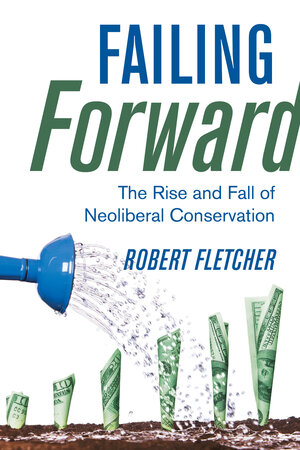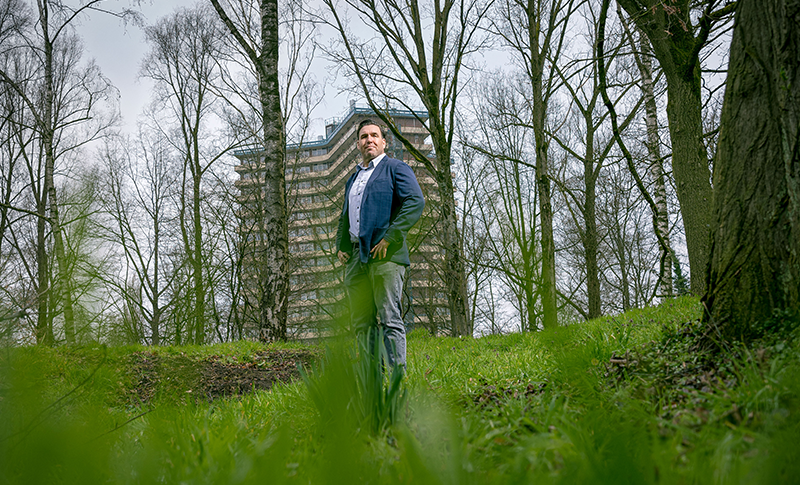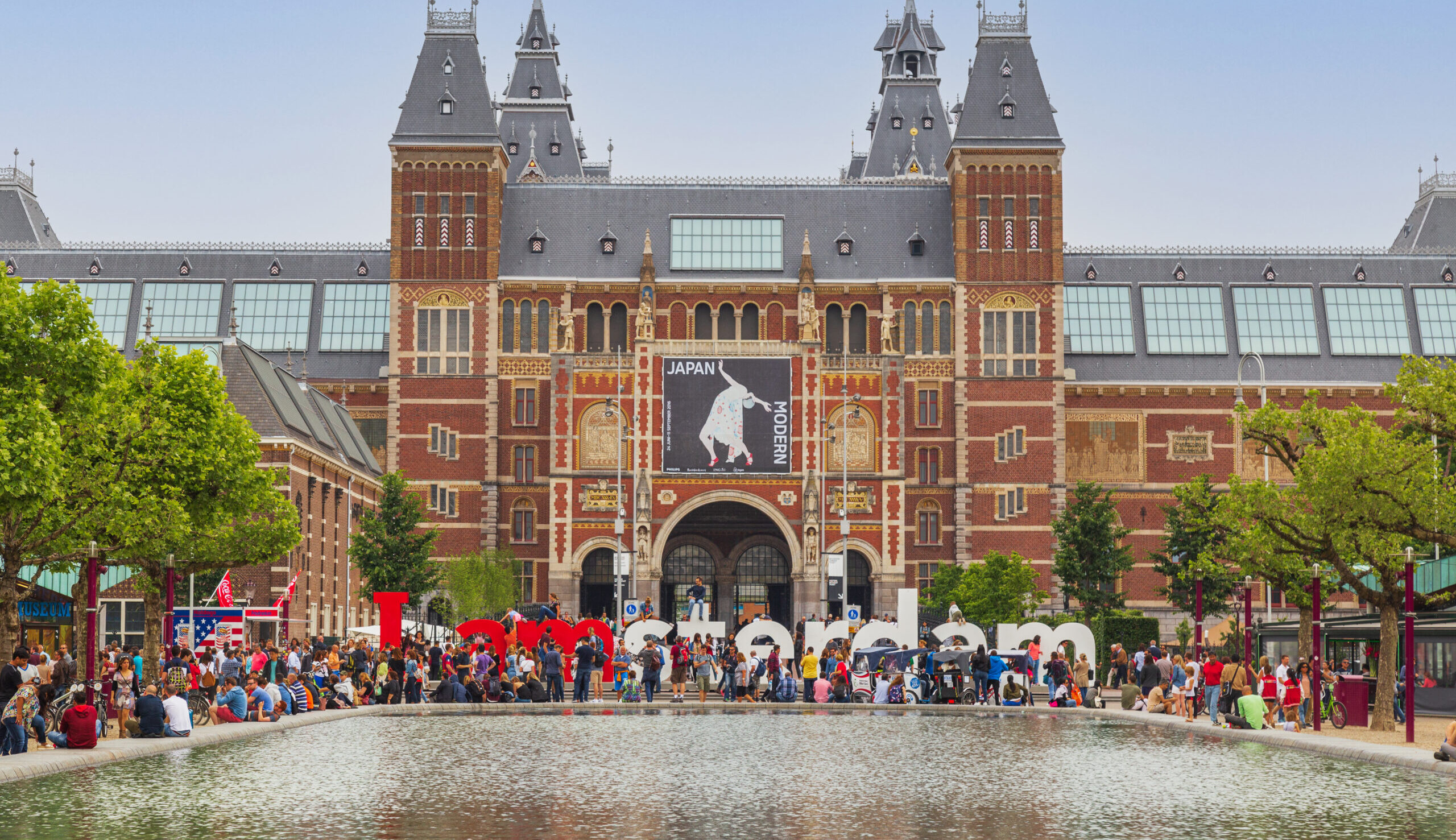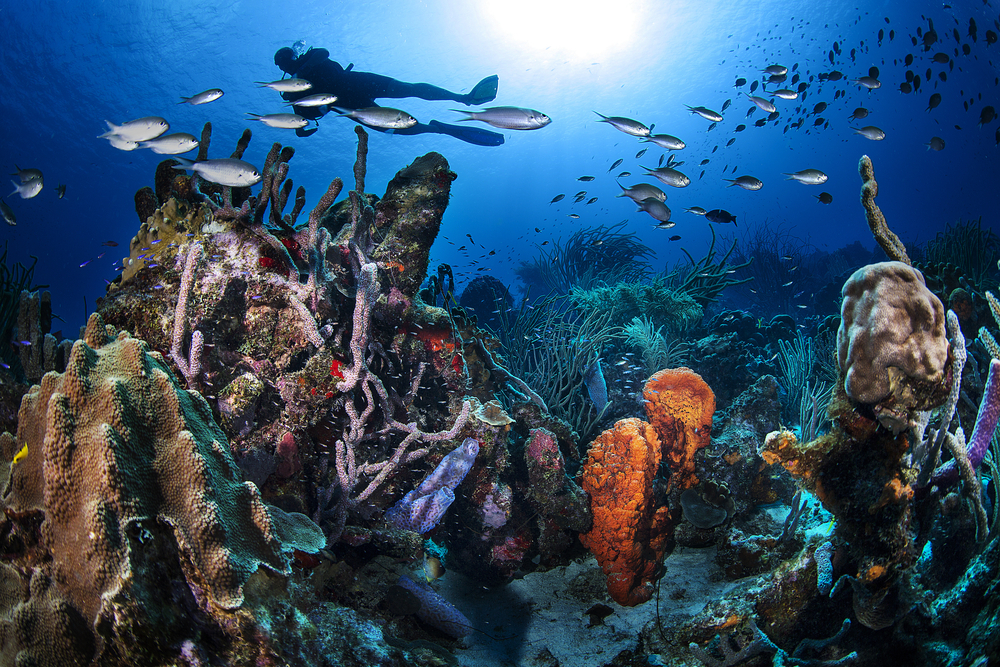Robert Fletcher, associate professor of Social Sciences, has written a book about why we continue to believe in market solutions for environmental problems. It is called: Failing forward. The Rise and Fall of Neoliberal Conservation.
As soon as he had graduated, the American anthropologist Robert Fletcher set off for Costa Rica to work as an eco-guide, like many of his Californian classmates. Ten years later, he returned as a researcher at the University of Peace. He studied ecotourism and ways of generating income from nature conservation.
What did you learn in Costa Rica?
‘Costa Rica is known for being a country that does well at combating poverty and has efficient environmental protection. But people often don’t hear the real underlying story. After a crisis in 1980, the country adopted neoliberal policies. The idea was that the state would become less interventionist and leave more to the markets. But in practice, the state stayed in control of a lot of things. When the country recovered from the crisis, neoliberalism was cited as a reason for its success. It was seen as the first example worldwide of successful neoliberal nature conservation. But that is incorrect. Its success was mainly due to state regulation.’
What do you mean by neoliberal nature conservation?
‘Neoliberals assume a government can never have enough information to know how to divide everything up fairly. That is why they leave the division to the markets, so you get deregulation, decentralization, privatization and space for capitalism. Nature conservation too has to pay its way through market mechanisms.’
Can you give an example?
Costa Rica has a programme where landowners are paid to keep woodland and not turn it into fields, for example. It is seen as a major success. The income is supposed to come from the international trade in carbon credits, compensation for CO₂ emissions elsewhere. But only one per cent of the income comes from that; the rest is from donations, loans, taxes and grants. That’s not market mechanisms. It actually shows that state regulation works. They carry on investing in the hope it will eventually work on a market basis. My book is about why that belief in the market persists.’
Why do people continue to believe in it?
‘Some people are guilty of greenwashing. They realize the capitalist approach doesn’t work but they don’t care because it gives them a golden opportunity to ignore harmful practices. But I also spoke to people who hope it will work and are full of good intentions, for example sustainability managers in large multinationals and people who work for nature conservation organizations.’
You arrived at insights that explain the psychology.
‘Yes. That was partly thanks to my research on adventure tourism. An activity like white water rafting is a weird contrast: on the one hand, you’re doing something that could kill you, on the other it feels like a trip to Disneyland. As an anthropologist I couldn’t understand it at all. Until I considered the concept of disavowal, from psychoanalysis. You understand something at one level but deny it to some extent at a deeper level.’
People find it easier to imagine the end of the world than the end of capitalism
‘I suddenly realized that also applies to people’s approach to environmental problems. People work hard to solve the problem and that makes them feel they are doing the right thing — almost a blind conviction. They continue to believe in the fantasy of future success, which lets them overlook all the failures in the present.’
What is people’s response to your insights?
‘It’s difficult to get a discussion going about the alternatives I suggest. People claim they aren’t realistic. There’s a deep-rooted conviction that there is no alternative to neoliberalism and capitalism. I once heard a nice quote: “People find it easier to imagine the end of the world than the end of capitalism.” That often seems to be the case.’
Is there a good alternative?
‘Absolutely. There are lots, in fact. People think you have to choose between capitalism and communism. And communism has not proved to be a suitable alternative. But there are good examples of communities that use nature without relying heavily on the state or on market mechanisms.’
In your book, you give ‘degrowth’ as an alternative.
‘By degrowth, I mean a more equitable division worldwide of what we already have. The wealthy countries can manage with less, to leave scope for sustainable growth in poor countries.’

Is that feasible?
‘Degrowth is the only thing that can save us. The sooner we stop believing in fairy tales, the sooner we can get on with doing what’s necessary. The notion that there isn’t enough yet for everyone is a myth. After the banking crisis in 2008, America invested so much money that if they had divided that amount among the world’s population, everyone would be a millionaire. But it went to just a few companies. And about a quarter or third of all the wealth on Earth is hidden away in tax havens. You can’t really keep on insisting there isn’t enough money. It’s a question of priorities.’
How do you personally stay positive?
‘By saying the things that I think need saying. By telling people the market mechanisms they believe in don’t work. And we can only save the planet by making really big changes. That isn’t easy. But we need to stop believing capitalism can be sustainable.’

 Robert Fletcher. Photo Eric Scholten
Robert Fletcher. Photo Eric Scholten 

